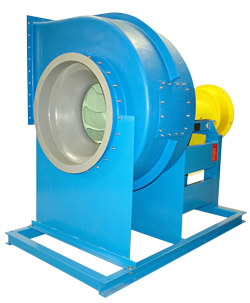Verantis fans, as a standard, include carbon steel shafts that are painted to provide extended service life with reduced corrosion. Unpainted shafts can start corroding in as little as 24 hours.

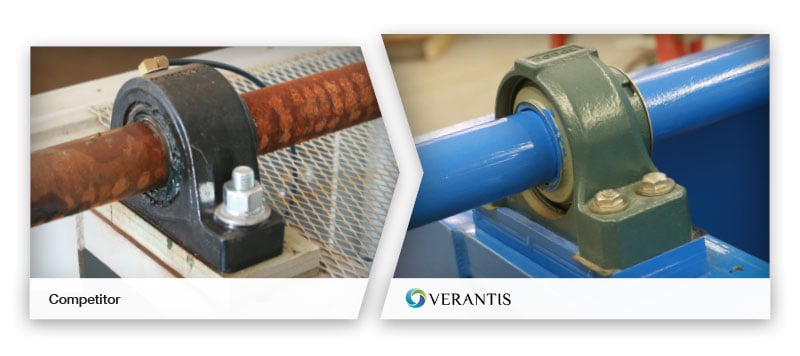
Verantis fans, as a standard, include carbon steel shafts that are painted to provide extended service life with reduced corrosion. Unpainted shafts can start corroding in as little as 24 hours.
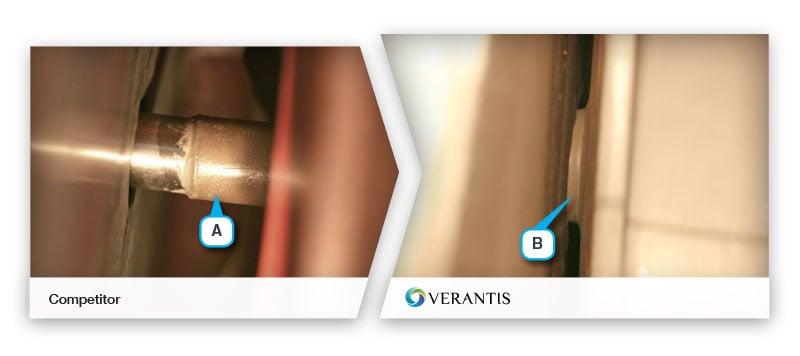
As a standard, Verantis fan hubs are fully encapsulated in Fiberglass Reinforced Plastic (FRP) and precision ground to fit the seal for minimum leakage. Verantis has no exposed metal to the air stream.
A. Exposing shaft to a corrosive air stream can reduce life span of fan.
B. FRP encapsulated hub design protects the shaft from the air stream.
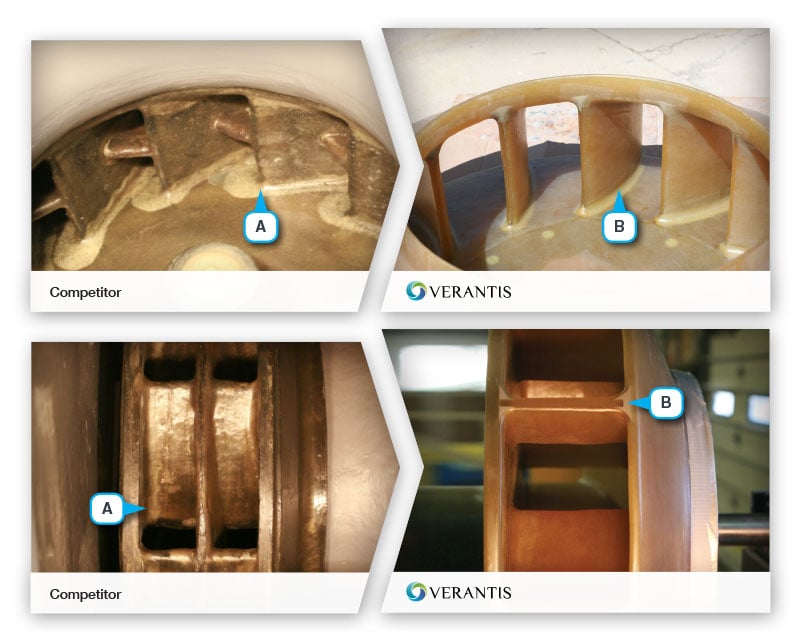
Heat induced stress fracturing at the fabrication stage can cause cracks and delamination in the most critical, maximum stress areas.
A. Competitor fan shows delamination and a void resulting from heat-induced stress fracturing.
This can result in premature failure.
B. Verantis fan shows fiber-reinforced structural filler adhesive, which allows for better bonding contact with laminates and increases structural integrity.
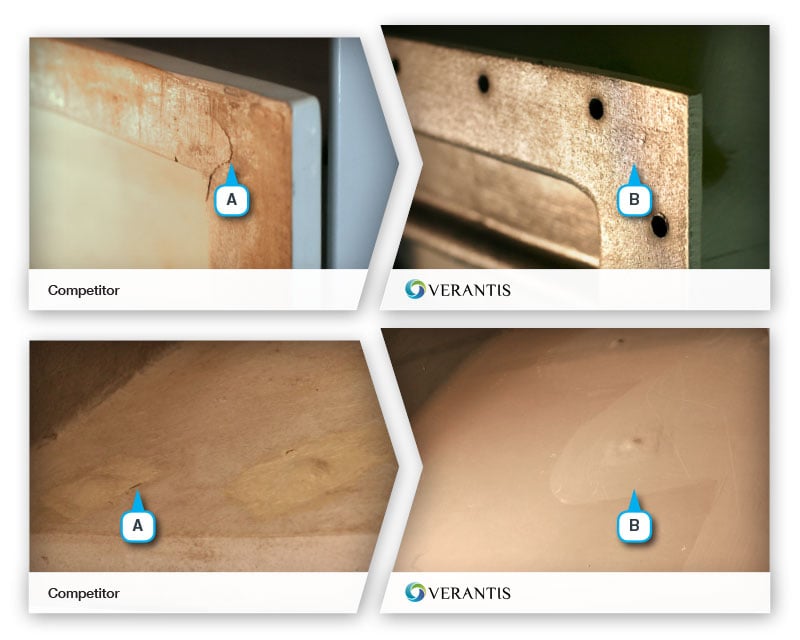
Cracking and delamination is common when you overlay FRP onto Plastic. It is difficult to achieve a strong bond between the two different materials. This is an inherent problem when trying to use plastic fans for FRP applications.
A. Cracks and delamination can occur when you overlay FRP onto plastic. This decreases the corrosive resistance of the fan.
B. Bonding FRP to FRP provides a strong, corrosion resistant surface.
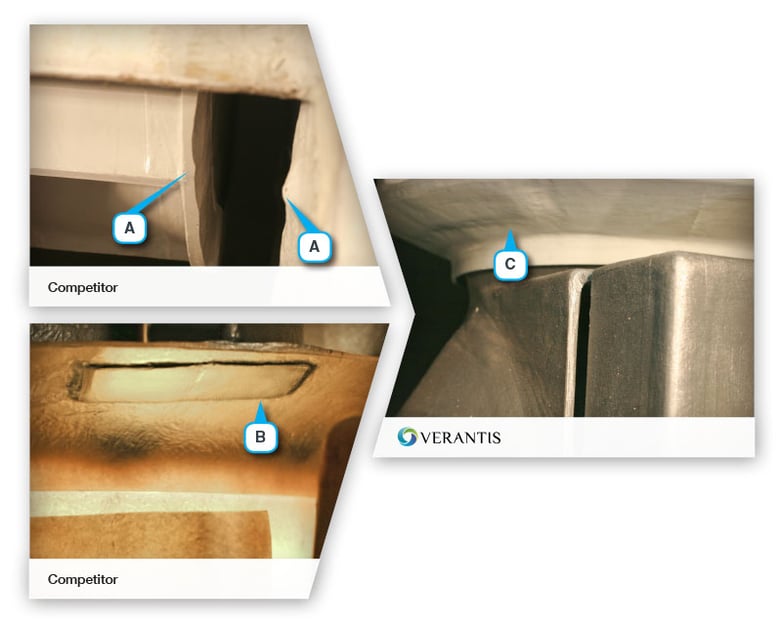
During balancing, adding dissimilar materials can allow for delamination and the result is unevenness which can lead to balancing issues. Verantis only adds identical impeller base materials to the impeller for balancing. Material is never removed as it can compromise the structural integrity of the impeller. Verantis never uses metal balance weights or metal clips to balance an FRP fan.
A. Removal of material compromises structural integrity.
B. Addition of dissimilar material that is bonded to FRP can lead to balancing issues or fall off entirely.
C. Verantis only uses identical base materials and, as a standard, finishes all fans with C-Veil. This smooths out the finish and provides an extra layer of corrosion resistance.
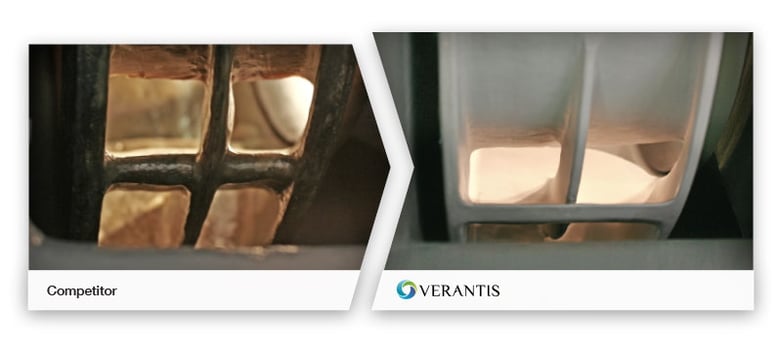
Verantis fans have uniformity in construction. Irregular surfaces can allow for uneven buildup of contaminants and cause increased vibration and instability which can result in an unbalanced impeller. In addition, non-uniform construction can compromise integrity and strength. Uniform surfaces keep impellers balanced for longer periods of time.
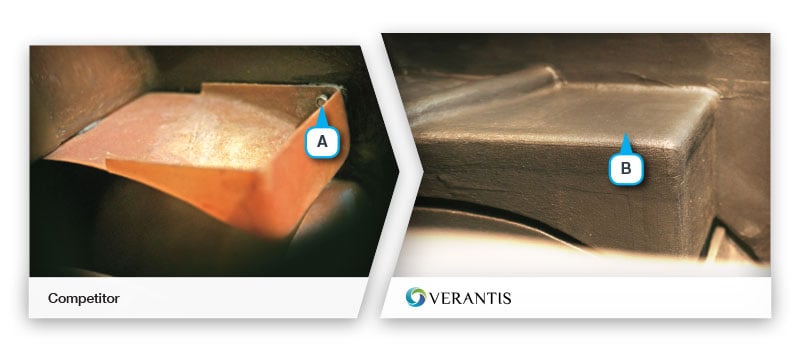
Verantis’ outlet box offers a robust, integrated construction that is directly bonded to the housing. There is no exposed metal to the air stream and the design does not allow for liquid or debris collection issues.
A. The open box design can cause turbulence and can collect residue and fluids. In addition, the bolt is exposed to the corrosive air stream.
B. Verantis integrates its outlet box to eliminate these types of issues.
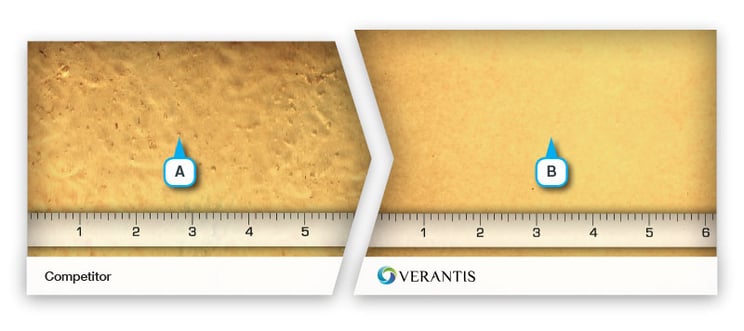
ASTM (American Society for Testing and Materials) Standard 2563 defines air bubbles as “air entrapment within and between the plies of reinforcement, usually spherical in shape”.
Visual Acceptance Level 2 allows for a maximum diameter of 1.5mm in a 2 inch square area.
Visual Acceptance Level 3 allows for a maximum diameter of 3.0mm in a 4 inch square area.
A. The competitor fan above does not meet Level 2 or Level 3 ASTM 2563 standards.
B. Verantis fan above meets this Level 2 standard.
